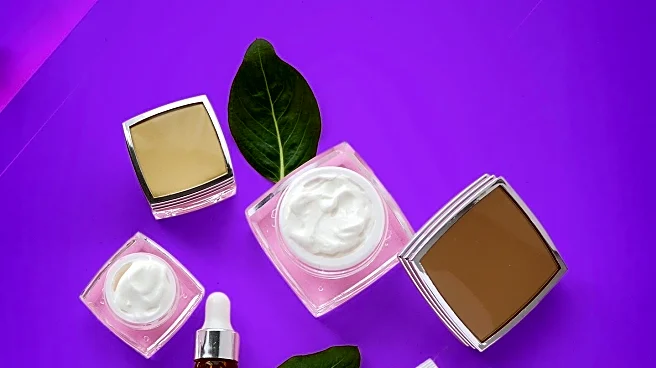What is the story about?
What's Happening?
Dermatologists have identified several over-the-counter products that can help reduce the appearance of scars, which are a natural part of the skin's healing process. Dr. Blair Murphy-Rose, a board-certified dermatologist based in New York City, explains that scars can cause changes in skin color and texture, leading to post-inflammatory hypo- or hyper-pigmentation. Scars can be hypertrophic, atrophic, or keloid, each requiring different treatment approaches. Dr. Brendan Camp, another board-certified dermatologist, notes that blemishes or acne can leave discoloration and hyperpigmentation, which may resemble scars but are not technically scars. Treatments for hypertrophic and keloid scars often involve in-office procedures like corticosteroid injections and laser treatments, while post-inflammatory hyperpigmentation can be managed with collagen-boosting skincare actives like retinoids.
Why It's Important?
The ability to reduce the appearance of scars is significant for individuals seeking to improve their skin's aesthetic appeal and boost their confidence. Scars can be a source of discomfort and self-consciousness, impacting social interactions and personal well-being. The availability of effective over-the-counter treatments provides accessible options for those who may not have the resources for in-office procedures. Additionally, understanding the different types of scars and their treatments can empower individuals to make informed decisions about their skincare routines, potentially reducing the need for more invasive treatments.

















